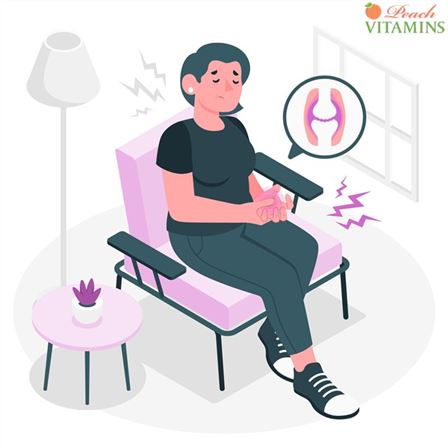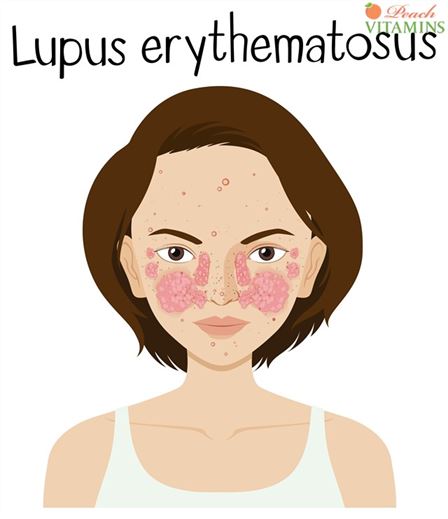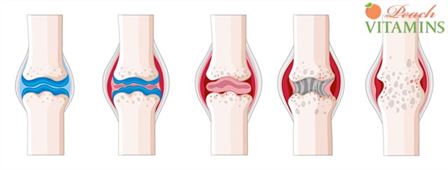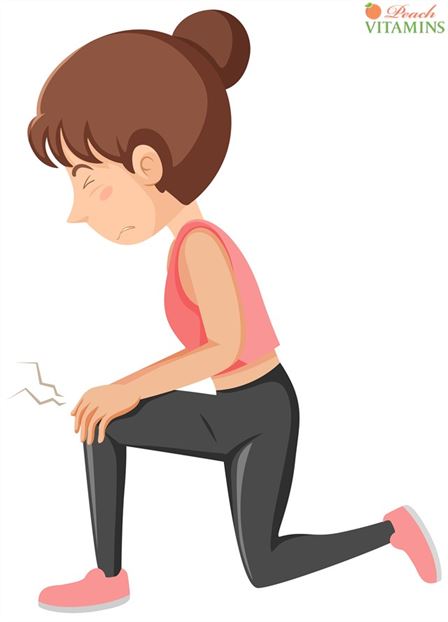What is lupus? How does it affect women? Is there anything I can do to treat it?
Lupus is a chronic autoimmune disease that affects skin, joints, lungs, heart, kidneys, brain, blood vessels, and other organs. Women are twice as likely to develop lupus as men. The symptoms include fatigue, joint pain, fever, swollen glands, mouth sores, hair loss, and kidney problems. There is no cure for lupus, but treatment focuses on managing symptoms and preventing complications.
Ayurveda is the oldest system of medicine known to humankind. In Ayurveda, lupus is called Vata roga (Vata disorder) and is considered a type of vata dosha imbalance. According to Ayurveda, the root cause of Vata roga is improper digestion.
This leads to the excessive accumulation of ama (toxins) in the body. Ama accumulates in the tissues and causes inflammation, leading to swelling and pain.

Ayurvedic Treatment of Lupus: What Kind Of Diet?
There are several types of diets for lupus patients. One type is called the ‘Ayurvedic diet.’ This diet focuses on eating foods that are rich in vitamins, minerals, antioxidants, and fiber. These nutrients help boost immunity and fight inflammation.
Another type of diet is called the ‘Grain Free’ diet. This diet eliminates grains, dairy, and processed food. Instead, it emphasizes whole foods like fruits, vegetables, nuts, seeds, beans, and lean meats.
Finally, there is the ‘Paleo Diet,’ which is because our ancestors ate a lot of meat, fish, eggs, and veggies. This diet encourages the consumption of organic produce and grass-fed beef.
Which diet is right for you depends on your individual needs. Some people find that eliminating certain foods helps them feel better. Others find that adding specific foods helps them feel better too.
If you’re not sure which diet works best for you, talk to your health care professionals. He or she can recommend a diet plan that fits your lifestyle and medical condition.
Causes of Lupus
One theory suggests that genetics play a role. Another theory suggests that environmental factors trigger the immune system to attack itself.
Regardless of its cause, lupus affects many parts of the body, including joints, skin, kidneys, lungs, heart, blood vessels, brain, eyes, and digestive tract. Symptoms include fatigue, fever, joint pain, mouth sores, hair loss, weight gain, and depression.
Ayurveda is a traditional Indian medical system based on the belief that everything in nature has a purpose. This includes the human body. So when treating lupus, Ayurvedic doctors use herbs, diet, exercise, massage, meditation, yoga, and other holistic therapies to help patients recover.

Kidneys
Lupus affects the kidneys, so it’s important to understand the role of the kidney in treating lupus. The kidneys filter blood, remove waste, regulate water balance, produce hormones, and help maintain electrolyte balance. They’re also responsible for producing red blood cells, white blood cells, platelets, and antibodies.
When the kidneys aren’t working properly, these functions become impaired. This can lead to problems such as fatigue, weakness, weight gain, fever, joint pain, and skin rashes.
Ayurvedic medicine treats lupus by focusing on the body’s natural ability to heal itself. In Ayurveda, the kidneys are considered the seat of intelligence, so it makes sense that the treatment focuses on the kidneys’ function.
Blood and Blood Vessels
Blood pressure plays a major role in treating lupus, so it’s important for patients to monitor their blood pressure regularly. High blood pressure increases the risk of developing complications such as heart failure, strokes, and kidney damage.
In Ayurveda, high blood pressure is treated with herbs, diet, exercise and relaxation techniques. Yoga is particularly beneficial because it improves circulation and lowers blood pressure.
Blood tests may be necessary to diagnose lupus. Your healthcare provider will check how well your blood filters toxins and nutrients, how much protein and iron are present, and whether your blood clots normally.
Skin Rashes
A skin rash is one of the most common signs of lupus. It usually appears on the face, neck, arms, legs, hands, buttocks, feet, scalp, chest, and back. A rash that causes itching or burning can be more severe than a rash that doesn’t itch or burn.
Rashes develop when the immune system attacks healthy tissues. Itchy rashes may indicate allergies, while non-itchy rashes could mean lupus.
- A butterfly rash is another sign of lupus. This rash looks like a small caterpillar crawling across the skin.
- A facial rash is another symptom of lupus. Patients often report a red spot appearing on the cheekbone.
- A malar rash is a condition where the cheeks swell up and turn pink.
- A discoid rash is a thick, scaly patch on the skin that develops over time. It’s caused by inflammation of the skin.
Your quality of life depends on how you feel physically and emotionally. If you have lupus, you’ll need to manage symptoms and side effects of medication. You might also want to consider lifestyle changes that promote health and wellness.

Complications of Lupus
People with lupus often experience complications, including infections, bleeding disorders, and neurological issues. Complications can be life threatening and require treatment.
Ayurvedic medicine offers effective treatments for lupus. Ayurveda is a traditional system of healing based on the principles of balance and harmony between mind, body, and spirit.
Neonatal Lupus
Neonatal lupus occurs when a mother who has lupus passes antibodies to her baby during pregnancy. The baby may develop symptoms similar to those of adults with lupus, including joint pain, fever, skin rashes, and swollen glands.
Neonatal lupus usually resolves within two years of birth, although some babies continue to experience mild symptoms throughout childhood.
Foods That Help with Lupus
There are many foods that cure lupus. They’re called anti-inflammatory foods because they reduce inflammation in the body. These foods help treat lupus by reducing inflammation and increasing energy.
Here are some examples of anti-inflammatory foods:
• Watermelon – This fruit contains lycopene, an antioxidant that reduces inflammation.
• Broccoli – This vegetable contains sulforaphane, another powerful antioxidant that helps fight inflammation.
• Spinach – This leafy green contains vitamin K, which reduces inflammation.
• Avocados – This fruit contains monounsaturated fats, which reduce inflammation.
• Blueberries – This berry contains anthocyanins, antioxidants that reduce inflammation.
• Cucumbers – This veggie contains curcumin, an antioxidant that reduces swelling.
• Yogurt – This dairy product contains probiotics, beneficial bacteria that reduce inflammation.

Treating Lupus With Yoga
Yoga is an excellent treatment option because it helps reduce stress, relieves tension, improves circulation, strengthens muscles, and increases flexibility.
When practicing yoga, you should know your limits. Don’t push yourself too hard or try to do things you’re not ready for. Instead, practice at your own pace.
If you feel any discomfort during a yoga session, stop immediately. Otherwise, you may injure yourself.
Panchakarma Treatments for Lupus
Panchakarma treatments are cleansing therapies used to treat various diseases, including lupus. Panchakarma treatments include five different purification procedures:
1) Vamana (Vomiting): This procedure involves inducing vomiting through a combination of herbs and fasting. The patient drinks herbal tea mixed with warm water until he feels nauseous. Then he vomits, usually three times per day.
2) Nasya (Nasal Therapy): This treatment uses steam inhalation therapy to cleanse the nasal passages. Patients breathe steam through their nose for several minutes at a time.
3) Basti (Enema): An enema is a medicinal rectal infusion. The patient inserts a tube into his anus and receives a mixture of herbs and oil.
4) Abhyanga (Oil Massage): This massage technique involves applying oils to specific parts of the body.
5) Kapalbhati (Breath Control): This practice involves deep breathing exercises to stimulate the lungs and heart.
These treatments are very effective for treating lupus. They help reduce inflammation and improve circulation. They’re especially helpful for patients who suffer from chronic fatigue syndrome.
Although these treatments are not widely available in the United States, they’re commonly practiced in India and Nepal.

Ayurvedic Treatments for Sjogren Syndrome?
Ayurvedically speaking, sjogren syndrome is considered a vata imbalance. Vata is the element of air and space. It corresponds to the nervous system, brain, and nerves.
Vata is associated with movement, change, and transformation. It governs the digestive tract, respiratory system, and lymphatic system.
Accordingly, Ayurvedic practitioners use specific therapies to address the imbalances caused by sjogren syndrome. They may recommend dietary changes, herbal remedies, and lifestyle modifications.
One of the most important things to remember about Ayurvedic medicine is that it works best when used alongside conventional medical care.
Can Triphala Cure Autoimmune Disease?
Triphala is a traditional Indian herbal remedy used to treat many conditions, including autoimmune disease.
Autoimmune diseases occur when the body attacks itself. They include lupus, rheumatoid arthritis, multiple sclerosis, and others.
Triphala is made from three fruits—the berries of Amalaki (Emblica officinalis), Haritaki (Terminalia chebula) and Bibhitaki (Terminalia belerica). These fruits contain antioxidants, vitamins, minerals, and polyphenols that help reduce inflammation and protect against oxidative stress.
According to Ayurvedic medicine, triphala helps balance hormones, detoxify the liver, and strengthen immunity. It may also be helpful for treating autoimmune diseases because it contains anti-inflammatory compounds, such as gallic acid, tannins, and flavonoids.
Triphala may also be useful for treating autoimmune diseases because of its ability to inhibit the production of pro-inflammatory cytokines, such as interleukin-1 beta, tumor necrosis factor alpha, and interferon gamma.

Can Giloy Cure Autoimmune Disease?
Giloy is a traditional Indian herb used to treat autoimmune diseases. It contains antioxidants, anti-inflammatory properties, and immune system boosting compounds that help fight off infections and boost the body’s ability to heal itself.
Is Ashwagandha Good for Autoimmune Disease?
Ashwagandha (Withania somnifera) is a herb native to India and used in traditional medicine. It’s been effective at treating autoimmune diseases, including lupus.
While there is no cure for lupus, some treatments can help control the symptoms. One of these treatments is Ashwagandha.
Ashwagandha is a member of the nightshade family, along with tomatoes, potatoes, eggplants, and peppers. These plants share a common trait called alkaloids, which are natural chemicals found in many foods.
Alkaloids are bitter tasting, and most people find them unpleasant. However, they’re important because they protect plants against insects and animals. They also play a role in human health.
One type of alkaloid, called withanolides, is found in Ashwagandha and helps fight inflammation. This makes Ashwagandha a popular treatment for arthritis, especially osteoarthritis.

Is Garlic Good for Lupus?
Garlic is a powerful herb that helps fight infections and boost immunity. But does garlic help treat lupus?
If you’re interested in trying garlic for lupus, talk to your healthcare team. He or she can advise you whether it’s safe for you to take garlic supplements.
Final Thoughts
The treatment of lupus in Ayurveda involves using herbs like Triphala, Ashwagandha, and Garlic. Herbs like these have been shown to help relieve pain and improve the quality of life for those living with lupus.
Ayurveda is one of the oldest medical systems still practiced today. It was developed thousands of years ago to address issues related to our bodies and minds. Its focus on self care, healthy eating, and overall well being is something we should all strive toward.
Ayurvedic practitioner Cosmic Mike can work with you to improve your daily life with holistic healing techniques that promote longevity and wellness.
